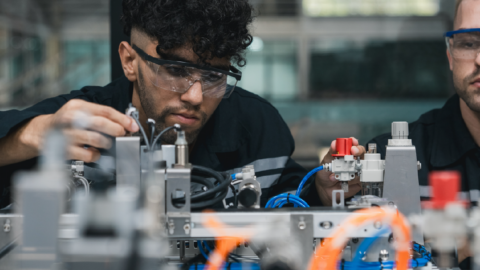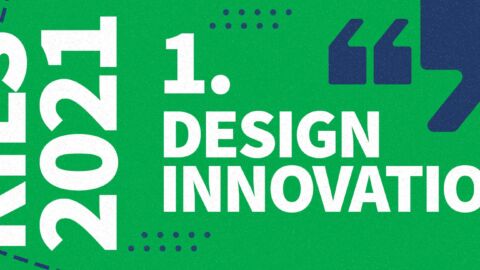
Comparability Isn’t All or Nothing
Understanding comparability as a multifaceted problem—not a yes-or-no issue—can help states as they create innovative assessment systems.
Read More
Understanding comparability as a multifaceted problem—not a yes-or-no issue—can help states as they create innovative assessment systems.
Read More
Are states creating tests that are truly innovative? To answer that, we took a look at the characteristics, process and purposes of innovation.
Read More
Shifting from an accountability mindset to reciprocal responsibility could transform the way schools, districts and states work toward improvement.
Read More
Before launching a project to build an “innovative” assessment for education, it’s wise to define what you want to move toward—and away from.
Read More
Google’s recent release of Gemini showcases AI’s potential to reshape educational assessment. We must be open to these changes, while monitoring and managing their risks.
Read More
We can reduce testing in schools without sacrificing meaningful annual reports on students’ learning.
Read More
State testing has long been criticized for many reasons. We undertook a study to examine what tradeoffs might be necessary to reduce the footprint of state testing. Here’s a preview of our early findings.
Read More
It’s time to create school accountability systems that recognize the unique roles and responsibilities of states, districts and schools.
Read More
The federal innovative assessment pilot has hobbled the testing improvements it aimed to promote. We can change that by rethinking test comparability.
Read More
Those who promote using performance assessment for accountability may want to stop and consider exactly what they want to argue for.
Read More
An assessment’s negative or positive consequences are just as important as other dimensions of assessment quality, and should be part of test validity evaluations.
Read More
Advances in artificial intelligence are transforming assessment and accountability. We explore the risks and opportunities of AI in 10 areas of K-12 work.
Read More
Federal regulations limit states’ innovations in assessment. More substantial innovation can happen only with more flexibility in accountability.
Read More
Science, technology, and the arts (STEAM) combine to provide exceptional educational value and innovation to students.
Read More
Making the Case for a New Approach to Federal School Accountability The U.S. Department of Education followed an all too familiar pattern of publishing important guidance just before the Christmas […]
Read More
Thoughts on What Has Worked Well, What Has Been Less Successful, and Why This post is based on Charlie DePascale’s presentation during Session 1 of the virtual 2021 Reidy Interactive […]
Read More
Discussions with State Leaders Approved to Implement Innovative Assessment Demonstration Authority Pilots Five states have been approved to implement innovative assessment pilots as part of the Innovative Assessment Demonstration Authority (IADA) under […]
Read More
Game-Based Assessment Can be Fun for Students: Can We Make Its Use More Informative for Teachers? This is the fifth post by one of our 2021 summer interns based on their project […]
Read More